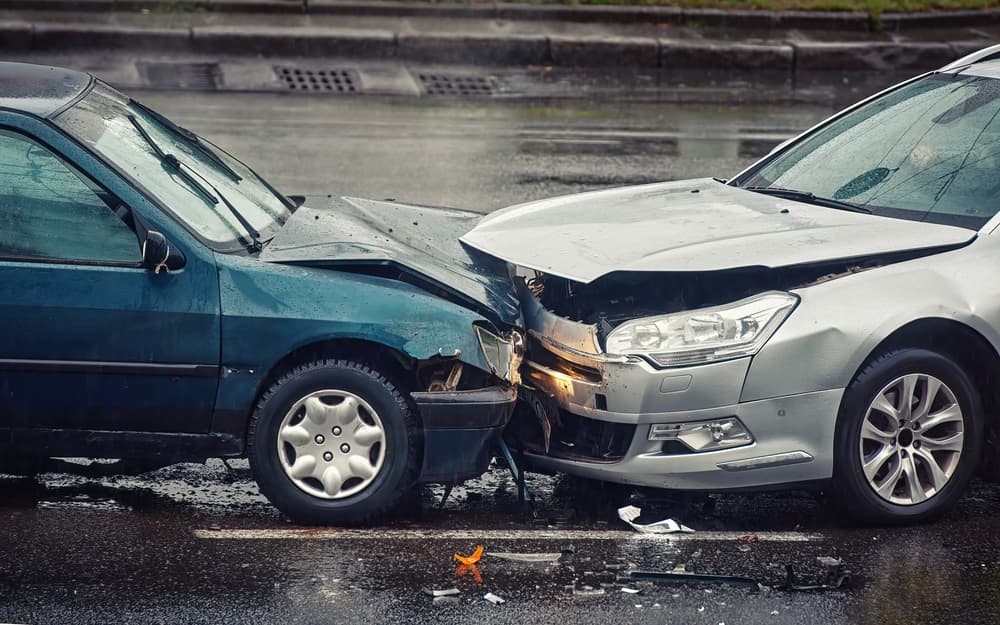Can I Lose My House Due to At Fault Car Accident in Pennsylvania?
By Ben Gobel on October 17, 2024

After getting into a car accident, you’ll be focused on your injuries and the associated costs. This stressful time may become even more difficult if you are blamed either fully or partially for the crash. When you’re in an at-fault car accident, your insurance coverage should handle things.
However, if the limits of your insurance policy are not enough to cover the damages in an at-fault car accident, you may wonder if you can lose your house to cover the remaining losses. The answer is not a simple one, and it will vary based on your circumstances. It’s best to speak with a car accident lawyer who can assess your situation and provide the professional advice you need.
The legal team at Ogg, Murphy & Perkosky, P.C. can help you protect your rights in such situations. In this informative article, we discuss the specific laws that may come into play for car accidents and help you determine the answer to your most pressing question—can you lose your house due to a car accident?
Understanding Pennsylvania Car Accident Laws
Pennsylvania follows a no-fault model. This means that each driver is covered by their own auto insurance coverage. Your car insurance policy will cover your injuries in a crash while the other party’s injuries will be covered by their insurance carrier.
However, there is a risk that you may lose your assets if you cause an accident that results in serious injuries to the other driver. Comparative fault laws in Pennsylvania allow for more than one driver in an accident to be deemed at fault.
Pennsylvania follows a modified comparative negligence rule, which states that if you are 51% or more at fault in these events, you will be barred from recovering compensation. Because liability coverage limits, injury severity, and other factors can impact your financial recovery in a car accident lawsuit, you should discuss this with a personal injury attorney to find out what it means for you.
Potential Risks of Losing Your Home After a Car Accident
Many financial repercussions can arise after a car accident. Often, many people don’t align their insurance coverage with their net worth, nor do they get an umbrella policy to protect them in these events even as their home equity rises. The state’s homestead laws may not provide the protection you need to hold onto your home when you are liable for an accident.
Since asset protection is often viewed as yet another expense when budgets are already tight, you may face serious financial implications if you are involved in an accident and are found liable. All accidents and policy limits vary, which makes it critical to speak with a legal professional immediately to help you protect your primary residence.
How the Insurance Coverage from Your Insurance Company Plays a Role
Your home and personal assets may be at risk after a crash. Even if you are the injured party, you may receive part of the fault in this accident. Pennsylvania drivers are all required to carry bodily injury liability coverage at a minimum of $15,000 per person and liability insurance of $30,000 minimum for the whole accident. Additional liability coverage is required for medical benefits and property damage.
Unfortunately, due to the high costs of living and expenses—including those for an auto insurance policy—your liability coverage limit may not be adequate for covering severe injuries to another driver. In these events, liability insurance under the standard car insurance policy minimums required by the state may leave you vulnerable after insurance has been exceeded.
What does this mean for you? It means that you will most likely wind up in civil court with a personal injury lawsuit.
Steps to Take to Protect Yourself and Your Home After a Car Accident
You can take the right steps after your accident to protect yourself from legal action and prevent yourself from being deemed at fault. The first step is to call the police to report your collision. You’ll need to do this if there is extensive property damage, injuries, or if anyone was killed in the crash.
The police will complete an accident report, giving their opinion of what they believe to have happened. They will also summon medical care for anyone with injuries. Make sure you are examined by medical professionals even if you don’t think you’ve been hurt beyond a few small cuts or bruises. Many injuries are much deeper than they appear on the surface. If you plan to file a personal injury case, you will want medical records created that allow you to request the other party cover damages you’ve suffered.
If it’s possible, you’ll also want to take photos and videos of the accident and speak to any witnesses who can corroborate your version of what happened. Unfortunately, many personal injury cases arise because another driver tries to pin the blame for their negligent actions elsewhere. The evidence that you gather can protect your net worth, your home, and your other assets.
When you are being blamed for an accident you didn’t cause or you are assigned more blame than you deserve, speak to an attorney who can advocate for your legal rights. Your minimal coverage may also mean that the other party may potentially target your house if their damages exceed the limits of their policy.
The personal injury attorneys at Ogg, Murphy & Perkosky, P.C. can help you with a free initial consultation to have a better understanding of how to navigate the legal process.
